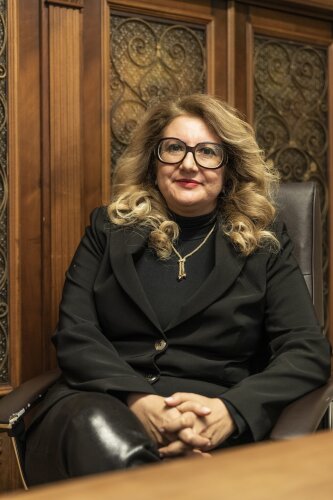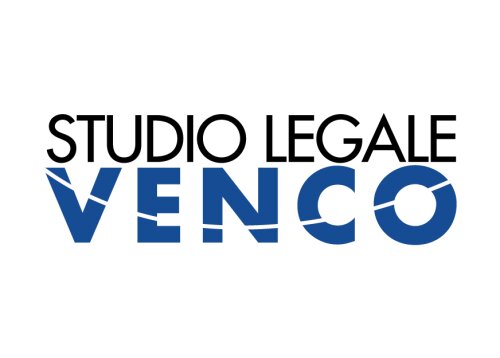Best White Collar Crime Lawyers in Italy
Share your needs with us, get contacted by law firms.
Free. Takes 2 min.
Or refine your search by selecting a city:
List of the best lawyers in Italy
About White Collar Crime Law in Italy
White Collar Crime in Italy refers to non-violent crimes typically committed for financial gain by individuals, businesses, and government professionals. The range of crimes includes fraud, bribery, insider trading, embezzlement, computer crimes, and money laundering. The Italian legal system takes these offenses seriously, and laws are designed to protect the economic integrity and stability of the country.
Why You May Need a Lawyer
Individuals or businesses may seek legal assistance in white-collar crime cases for various reasons. If you are accused of any offense, it is crucial to have a lawyer to navigate the complex legal system and protect your rights. Businesses might require legal guidance to implement compliance programs to prevent such crimes. Additionally, victims of white-collar crimes may need legal support for restitution and pursuing claims against offenders.
Local Laws Overview
The framework for white-collar crime in Italy is regulated under the Italian Penal Code and other specific legislation addressing financial market operations and corporate governance. Key elements include laws against fraud, tax evasion, corruption, and money laundering. Italy follows a civil law system, and cases are often complex, involving both criminal and civil proceedings. Enforcement agencies like the Guardia di Finanza and regulatory bodies such as the Italian Securities and Exchange Commission (CONSOB) play vital roles in identifying and prosecuting white-collar crimes.
Frequently Asked Questions
What is considered a white-collar crime in Italy?
White-collar crimes are non-violent crimes committed for financial gain, including fraud, embezzlement, bribery, money laundering, insider trading, and tax evasion.
How serious are penalties for white-collar crimes in Italy?
Penalties can be severe and include imprisonment, fines, and the forfeiture of property and assets. The severity depends on the crime's nature, amount involved, and impact on victims.
Are companies also liable for white-collar crimes in Italy?
Yes, under Legislative Decree No. 231/2001, companies can be held liable for offenses committed by their employees or executives if connected to corporate benefits.
How can I defend myself against white-collar crime allegations?
Engaging a specialized lawyer who understands the complexity of financial laws is crucial for building a defense. Thorough investigation and evidence collection are essential to challenge the allegations.
What should I do if accused of a white-collar crime?
Immediately seek legal counsel to understand the charges, your rights, and the potential defense strategies. Do not communicate with authorities without legal representation.
What role does the Guardia di Finanza play in white-collar crime?
The Guardia di Finanza is a law enforcement agency that focuses on financial crimes, including tax evasion and fraud, playing a crucial role in investigations and prosecutions.
Can victims of white-collar crimes seek restitution?
Yes, victims can pursue civil claims for damages suffered due to fraud or other white-collar crimes, often alongside the criminal proceedings.
How long do white-collar crime investigations typically take?
Investigations can be lengthy due to the complex nature of the crimes and may take several months to years, depending on the case scale and jurisdiction involved.
What preventive measures can businesses take to avoid white-collar crimes?
Implementing robust compliance programs, regular audits, employee training, and ethical standards are vital in preventing white-collar crimes within companies.
Do international laws impact white-collar crime cases in Italy?
Yes, international cooperation and treaties, such as those under the European Union and the United Nations, affect the investigation and prosecution of cross-border financial crimes.
Additional Resources
Several resources and organizations can assist individuals and businesses with white-collar crime issues in Italy. These include the Ministry of Economy and Finance, CONSOB for securities regulations, and the Italian Banking Association for financial sector guidelines.
Next Steps
If you need legal assistance regarding white-collar crime in Italy, consider the following steps: consult a lawyer specializing in financial and corporate law, gather any relevant documentation and information about the case, and ensure you have a complete understanding of your rights and the potential legal consequences. Timely action and informed decisions are crucial to effectively manage legal issues related to white-collar crimes.
Lawzana helps you find the best lawyers and law firms in Italy through a curated and pre-screened list of qualified legal professionals. Our platform offers rankings and detailed profiles of attorneys and law firms, allowing you to compare based on practice areas, including White Collar Crime, experience, and client feedback.
Each profile includes a description of the firm's areas of practice, client reviews, team members and partners, year of establishment, spoken languages, office locations, contact information, social media presence, and any published articles or resources. Most firms on our platform speak English and are experienced in both local and international legal matters.
Get a quote from top-rated law firms in Italy — quickly, securely, and without unnecessary hassle.
Disclaimer:
The information provided on this page is for general informational purposes only and does not constitute legal advice. While we strive to ensure the accuracy and relevance of the content, legal information may change over time, and interpretations of the law can vary. You should always consult with a qualified legal professional for advice specific to your situation.
We disclaim all liability for actions taken or not taken based on the content of this page. If you believe any information is incorrect or outdated, please contact us, and we will review and update it where appropriate.
Browse white collar crime law firms by city in Italy
Refine your search by selecting a city.
















